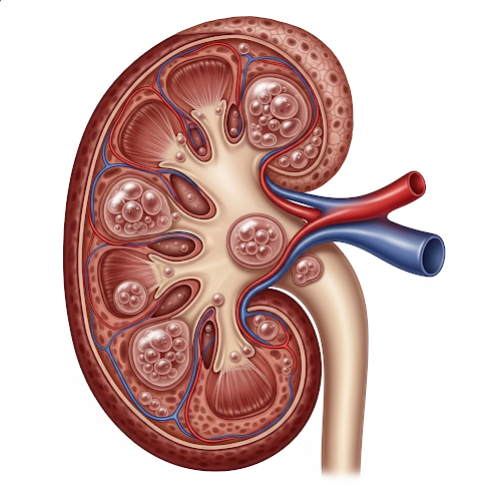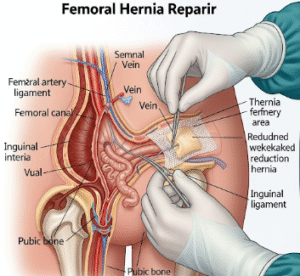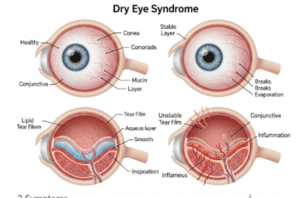Overview
Kidney cysts are fluid-filled sacs that form on or within the kidneys. They are common and often benign, typically discovered incidentally during imaging for unrelated health concerns. While simple kidney cysts usually cause no symptoms and require minimal treatment, complex cysts may lead to complications or indicate underlying kidney disease. In Korea, advanced nephrology and urology centers provide thorough evaluation and management options to distinguish benign cysts from pathological ones and deliver personalized care.
What Are Kidney Cysts?
Kidney cysts are spherical sacs filled with clear or sometimes cloudy fluid that develop in the kidney tissue. There are two main types: simple cysts and complex cysts. Simple cysts are smooth, thin-walled, and generally harmless. Complex cysts have irregularities such as septations, calcifications, or solid components, which may require closer monitoring or intervention. Polycystic kidney disease (PKD) is a genetic disorder characterized by numerous cysts growing in the kidneys, often leading to kidney enlargement and impaired function.
Symptoms
Most simple kidney cysts are asymptomatic and found incidentally. When symptoms occur, they may include:
- Pain or discomfort in the flank or back
- Abdominal fullness or swelling due to large cysts
- Blood in the urine (hematuria)
- Frequent urinary tract infections (in complex cysts or PKD)
- High blood pressure associated with cyst-related kidney damage
- Occasionally, fever if cysts become infected
Causes
- Simple kidney cysts develop due to weakening of the tubules in the kidney, causing fluid to accumulate.
- Genetic mutations cause PKD, an inherited disorder leading to multiple cyst formation.
- Acquired cystic kidney disease may develop in patients with chronic kidney disease or those on long-term dialysis.
Risk Factors
- Increasing age, with higher incidence of simple cysts in older adults
- Family history of polycystic kidney disease
- Chronic kidney disease or renal failure
- Hypertension and other kidney disorders
- History of kidney trauma or infection
Complications
- Infection of cysts causing pain, fever, and systemic illness
- Rupture or bleeding into a cyst causing sudden pain and hematuria
- Compression of kidney tissue leading to impaired function
- High blood pressure and kidney failure in advanced polycystic kidney disease
- Rare transformation into cystic kidney cancer in complex cysts
Prevention
- Regular monitoring of kidney cysts with imaging to detect changes
- Managing blood pressure and kidney health proactively
- Avoiding kidney trauma or infections
- Early genetic counseling and testing for families with PKD history
- Healthy lifestyle to support kidney function including hydration and diet
Treatment Options in Korea
Korean healthcare providers offer a spectrum of diagnostic and therapeutic interventions for kidney cysts:
- Imaging and Diagnosis: Ultrasound, CT scans, and MRI are used to classify cysts, assess size, and identify suspicious features requiring intervention.
- Observation: Simple cysts without symptoms are monitored periodically to track growth or complications.
- Percutaneous Aspiration and Sclerotherapy: For symptomatic cysts, fluid can be drained using minimally invasive needle aspiration, sometimes followed by sclerotherapy to prevent recurrence.
- Surgical Intervention: Large, complex, or symptomatic cysts may require laparoscopic or open surgery for removal or drainage.
- Management of Polycystic Kidney Disease: Multidisciplinary care includes blood pressure control, pain management, and, in advanced cases, dialysis or kidney transplantation. New targeted therapies for PKD are also available in Korean centers.
- Patient Education and Lifestyle Counseling: Korean nephrologists provide tailored advice on diet, hydration, and monitoring to maintain kidney health.
Korea’s medical system excels in early detection and personalized management of kidney cysts, minimizing risks and preserving renal function.













